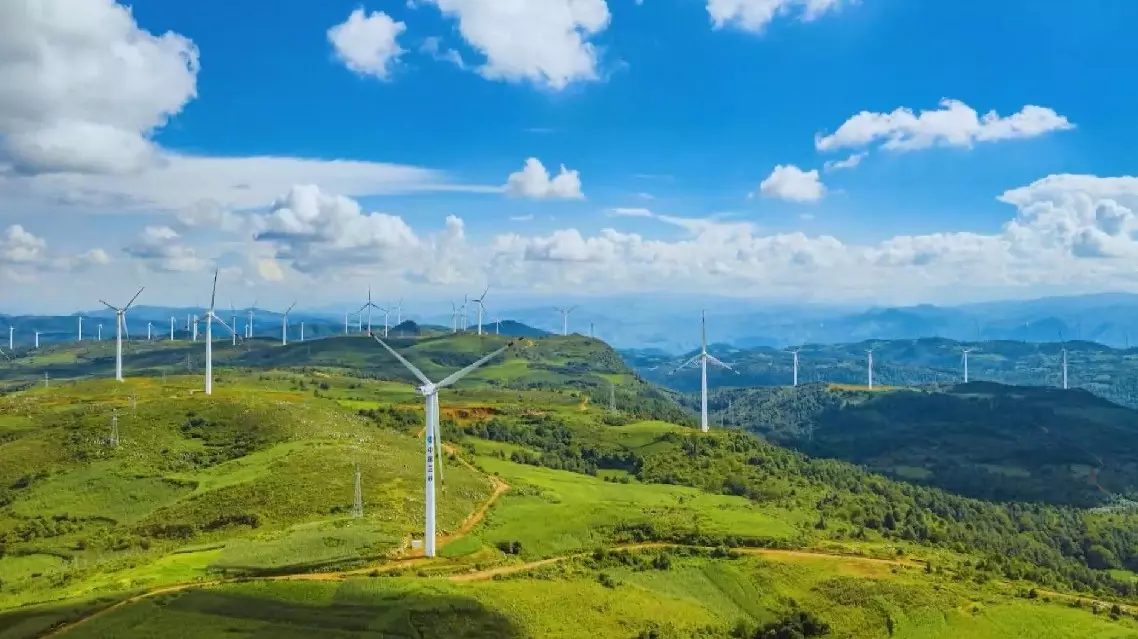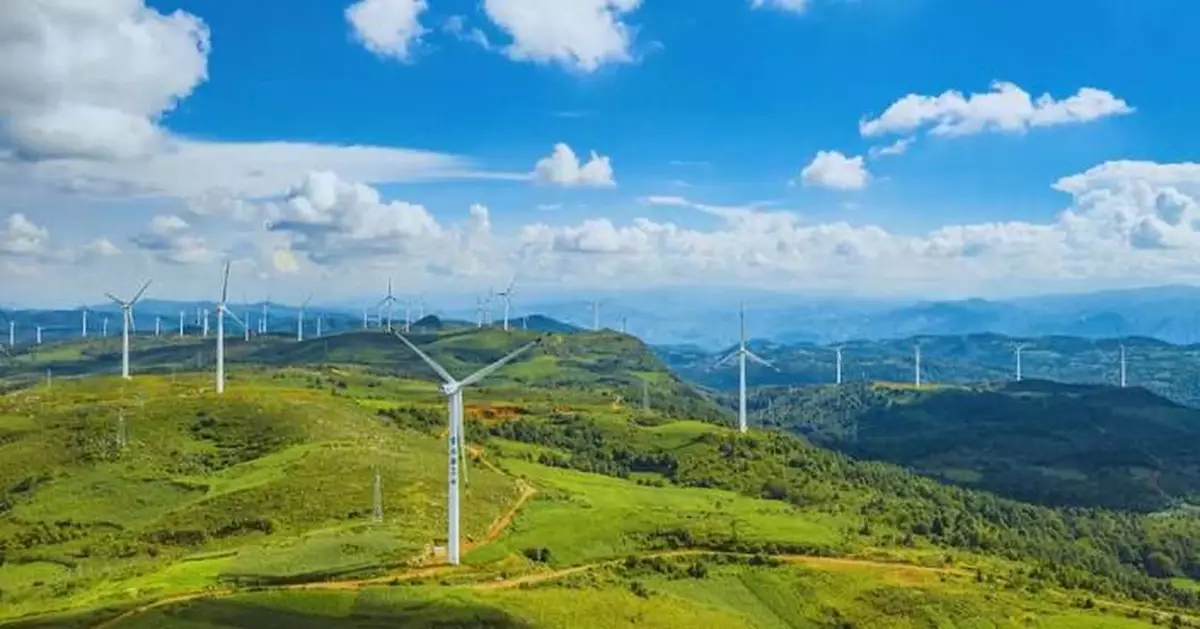China's ecological and environmental protection has witnessed historic, transformative, and comprehensive changes over the past decade, exemplifying its commitment to protecting the ecosystem and fighting global climate change.
One notable achievement in China's ecological and environmental protection is the progress made in the Three-North Shelterbelt Forest Program, a large-scale afforestation project. Initiated in 1978, the shelterbelt covers northwest, north, and northeast China, aiming to strengthen the ecological barrier in the northern regions of the country.
On the southern edge of the Tengger Desert, Gulang County in northwest China's Gansu Province used to see 31.62 percent of its land covered by desert. After years of efforts, Shidaogou in its northern desert area is mostly green.
In early July, conservationists were seen working hard to complete the initial reclamation of the county's 154,000 hectares of desertified land.
"The other day I climbed up the ridge of Shidaogou and was overwhelmed by what I saw. In the gently sloping areas to the south, the flower rods grew just like wheat fields, swaying with the wind," said Shi Yinshan, Deputy Director of Babusha Forestry Farm in Gulang County.
Over the years, Gulang County has continuously ramped up its efforts in desert reclamation, expanding the green zone deep into the desert.
For the past 11 years, Gulang County and the entire Three-North shelterbelt have gathered pace in expanding the green landscape of China's northern regions.
"The ecological and environmental quality has continuously improved [since 2012], and the value of ecological services has been increasing. We have managed to support the 6 percent GDP growth with just a 3 percent increase in energy consumption, and sustain our economic development with even less carbon emissions. The 'new trio' [referring to electric vehicles, lithium-ion batteries, and photovoltaic products] have become driving forces behind our new economic growth," said Wang Yi, Director of the Carbon Neutrality Research Center of the Institute of Science and Technology Strategy Consulting under the Chinese Academy of Sciences.
More than a decade ago, China found itself at a crucial historical juncture, taking on a series of pressing ecological challenges. Frequent foggy weather and unsustainable traditional development model had nearly exhausted the carrying capacity of resources and environment.
The 18th National Congress of the Communist Party of China convened in 2012 incorporated ecological conservation into the overall plan for building socialism with Chinese characteristics, and the construction of ecological civilization was written into the Party Constitution and China's Constitution in 2018.
The Yangtze River, China's longest waterway and revered as the "mother river" of the Chinese nation, presents a magnificent sight of clear water flowing eastward today, with abundant aquatic and wildlife after years of ecological protection and restoration efforts.
Since the launch of the 10-year fishing ban on the Yangtze River in 2021, rare fish species in the river have been frequently spotted.
The Yangtze River possesses a unique ecosystem and is an important ecological treasure trove in China. But there was a time when the long-term exploitative development and utilization of the river deteriorated its water environment.
"At the time the 13th Five-Year Plan was formulated, the provinces and municipalities along the Yangtze River were all eager to develop rapidly, catch up with the trends, and take their GDP to a higher level," said Wang.
While the Yangtze River is well protected, the Yellow River basin, one of the most important ecological barriers and economic zones of China, has also witnessed remarkable changes for the better in the restoration of its ecology and environment.
Today, the concepts that "society will prosper when the environment improves," "lucid waters and lush mountains are invaluable assets," and "prioritizing eco-environmental conservation and promoting green development" have taken root deep in the hearts of the people and have become a consensus of the whole society.
"Under the guidance of core principles, we have built a series of institutions, formulated a series of policies, and promoted one after another major project centering around the construction of ecological civilization, while mobilizing the whole society to achieve green development and ecological civilization. So the guiding role of principles and ideas is very crucial," said Gao Shiji, Director of the Institute for Resources and Environment Policies at the Development Research Center of the State Council.
One significant reform measure in China's ecological civilization system is the central inspection on ecological and environmental protection launched in 2016, resolving prominent environmental issues that were mostly complained by the people.
More than 20 laws related to ecological environment have been formulated or revised in the new era.
The Sanjiangyuan (Three-River-Source) area, home to the headwaters of the Yangtze, Yellow and Lancang rivers and known as China's "water tower," has now become a place of pristine beauty and thriving biodiversity with the establishment of Sanjiangyuan National Park, the world's highest national park, in striking contrast to the past when its biodiversity was seriously threatened as the area was under fragmented management without inter-department coordination.
The national park system, which unifies the strengths and responsibilities previously held by different departments under a single entity, has addressed the governance challenges faced by the Three Rivers Source region.
China aims to have CO2 emissions peak before 2030 and achieve carbon neutrality before 2060, President Xi Jinping announced at the general debate of the 75th session of the United Nations General Assembly in 2020.
"The move of raising the standard demonstrates China's commitment to fulfilling its international obligations on climate change, which has greatly boosted global confidence in tackling climate change. By prioritizing carbon reduction as a strategic direction and through coordinated efforts to reduce pollution and carbon emissions, China is advancing a comprehensive green transformation of its economy and society while realizing high-quality development," said Gao.
China is leading in renewable energy development and utilization, ranking first in the world in the production and sales of new energy vehicles. The concept of green and low-carbon life has now become a norm widely recognized by the public.

Decade-long conservation endeavor demonstrates China's commitment to protecting eco-environment

















































